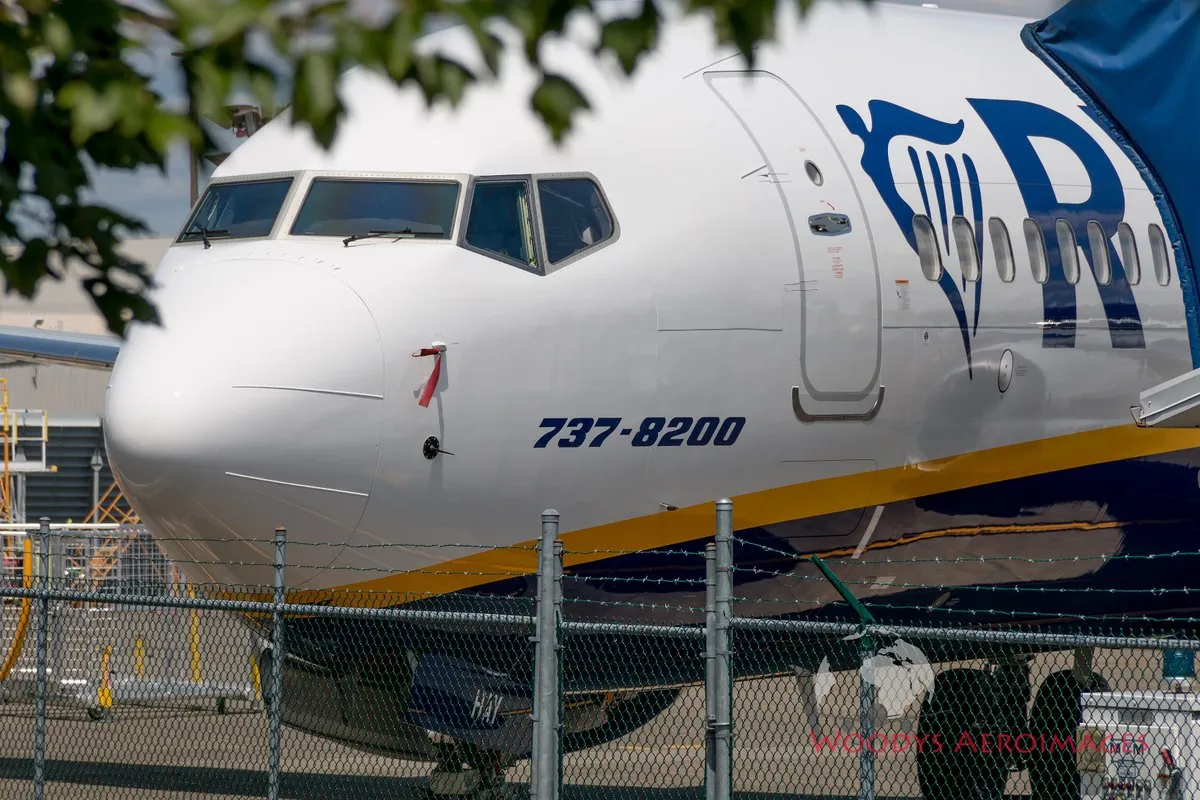
Boeing shares see biggest drop since 1974
Mar 12, 2020

Boeing shares experienced their most significant decline since 1974, reflecting deep concerns about the company's financial health and operational challenges. This sharp drop was driven by various factors, including ongoing supply chain issues, production delays, and a broader downturn in the aerospace sector. Investors reacted to disappointing earnings reports and cautious guidance, leading to heightened volatility in the stock. As Boeing grapples with these challenges, market sentiment remains cautious, prompting questions about its recovery trajectory and future growth prospects. The downturn underscores the ongoing struggles faced by the aerospace giant amid a rapidly changing industry landscape.
Boeing, once a dominant force in the aerospace industry, has recently experienced a significant downturn in its stock performance, marking its "biggest drop since 1974". This decline has sent shockwaves through the financial markets and raised concerns among investors and analysts alike. In this article, we will delve into the reasons behind this drastic fall, examine the implications for Boeing and the broader aerospace sector, and provide insights into how investors can navigate this turbulent landscape.
Understanding the Decline
Several factors have contributed to Boeing's staggering decline. One of the primary reasons is the ongoing fallout from the "737 MAX crisis", which has plagued the company for years. After two tragic crashes, the 737 MAX was grounded globally, leading to massive financial losses and reputational damage for Boeing. Although the aircraft has returned to service, the lingering effects of these incidents continue to haunt the company.
Additionally, Boeing has faced supply chain disruptions, especially in the wake of the COVID-19 pandemic. The aerospace industry has been severely impacted by restrictions and reduced demand for air travel, creating a ripple effect that has hampered production and delivery schedules. These challenges have resulted in a significant backlog of orders and have further eroded investor confidence.
Market Reactions
The stock market's reaction to Boeing's recent performance has been intense. Following the news of the "biggest drop since 1974", investors rushed to liquidate their holdings, leading to a sharp decline in the stock price. The accompanying chart below illustrates this dramatic shift in Boeing's stock performance over time, highlighting the steep decline in market value.
| Date | Stock Price | Change (%) |
|---|---|---|
| Jan 2020 | $320 | - |
| Mar 2020 | $150 | -53.12% |
| Jan 2023 | $215 | -32.81% |
| Oct 2023 | $100 | -53.49% |
Investor Sentiment
As Boeing's shares continue to plummet, investor sentiment has shifted dramatically. Many investors are reevaluating their positions and considering whether to hold or sell their shares. The uncertainty surrounding the company's future prospects, compounded by the ongoing global economic challenges, has led to a cautious approach among investors.
Analysts have suggested that Boeing's recovery will take time, and they urge investors to stay informed about developments in the aerospace sector. The company's ability to navigate through its current challenges and regain consumer trust will be crucial in determining its long-term success. Additionally, understanding "referrerAdCreative" techniques could play a role in how Boeing markets itself during this recovery phase, potentially influencing investor perception.
The Broader Aerospace Context
Boeing's struggles are not isolated; they reflect broader trends within the aerospace industry. The pandemic has accelerated the shift towards more sustainable aviation practices, with many airlines seeking to modernize their fleets. This transition poses both challenges and opportunities for Boeing, as it must adapt to changing market demands while addressing its current issues.
Competitors in the aerospace sector, such as Airbus, are capitalizing on Boeing's misfortunes. With growing demand for fuel-efficient aircraft, Airbus has seen an uptick in orders, further intensifying the competitive landscape. Boeing's ability to innovate and respond effectively to these market changes will be critical in regaining its standing in the industry.
Looking Ahead
As Boeing grapples with its current challenges, many are left wondering what the future holds. The company's leadership has indicated a commitment to addressing the underlying issues and restoring investor confidence. However, this process will undoubtedly take time and require strategic planning and execution.
For investors, understanding the implications of Boeing's decline is paramount. Keeping abreast of industry trends, company announcements, and market conditions will be essential for making informed decisions. Additionally, leveraging "referrerAdCreative" strategies can help investors navigate the complexities of the market, allowing them to identify potential opportunities amidst the turbulence.
Conclusion
Boeing's recent stock performance, characterized by its "biggest drop since 1974", serves as a reminder of the volatile nature of the aerospace industry. As the company works to overcome its challenges, both investors and industry analysts will be closely monitoring its progress. By staying informed and adapting to the ever-changing market landscape, stakeholders can position themselves for potential recovery and growth in the future.
Related Articles

Explore Thailand: The Best Islands to Visit for Paradise, Adventure, and Relaxation

The Ultimate Guide to the Best Islands in Thailand for Your Next Getaway

Do babies need passports? How to get a passport for a newborn

How to get a U.S. passport fast: here’s how to expedite the process

What is Mobile Passport Control: 5 reasons why you should use it

SENTRI vs. Global Entry: A detailed guide

Do you need a passport to go to the Bahamas? Let’s find out

Do you need a passport to go to Mexico? A detailed guide

Do you need a passport to go to Canada? We got the answer

Do You Need a Passport for a Cruise: An Essential Travel Guide

Booster Seat Requirements: All the Rules to Follow in Your Rental Car

What Are the World’s Most Powerful Passports, and How Does Yours Rank?

How to Take a Passport Photo at Home: A Helpful Guide

You've got to have heart! Southwest's new livery

Your opinion: Should water be free on low cost carriers?

Young women bolder than guys as solo travellers
